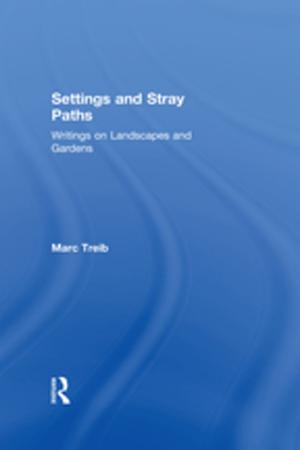Indonesia’s Foreign Policy and Grand Strategy in the 21st Century
Rise of an Indo-Pacific Power
Nonfiction, History, Asian, Southeast Asia, Social & Cultural Studies, Political Science, International, International Relations, Military| Author: | Vibhanshu Shekhar | ISBN: | 9781317199892 |
| Publisher: | Taylor and Francis | Publication: | March 14, 2018 |
| Imprint: | Routledge | Language: | English |
| Author: | Vibhanshu Shekhar |
| ISBN: | 9781317199892 |
| Publisher: | Taylor and Francis |
| Publication: | March 14, 2018 |
| Imprint: | Routledge |
| Language: | English |
This book examines the changes in Indonesian foreign policy during the 21st century as it seeks to position itself as a great power in the Indo-Pacific region.
The rise of 21st-century Indonesia is becoming a permanent fixture in both the domestic and global discourses. Though there has been an increasing level of discussion on Indonesia’s emerging power status, there has been little discussion on how the country is debating and signalling its new-found status. This book combines the insights of both neo-classical realism and social identity theory to discuss a reset in an emerging Indonesia’s foreign policy during the 21st century while emphasizing domestic drivers and constraints of its international behaviour. There are three key organizing components of the book – emerging power, status signalling and the Indo-Pacific region. The Indo-Pacific region constitutes a spatial framing of the book; the emerging power provides an analytical category to explain Indonesia’s changing international status; and status signalling explains multiple facets of international behaviour through which the country is projecting its new status. Though leaders are adding different styles and characteristics to the rising Indonesia narrative, there are a few unmistakable overarching trends that highlight an increasing correlation
between the country’s rising power and growing ambition in international behaviour. This book is built around four key signalling strategies of Indonesia as an emerging power – expanded regional canvas, power projection, leadership projection, and quest for great power parity. They represent Indonesia’s growing desire for a status-consistent behaviour, its response to the prevailing strategic uncertainty in the Indo-Pacific region and its attempt to advance its strategic interests.
This book will be of much interest to students of South-East Asian politics, strategic studies, international diplomacy, security studies and IR in general.
This book examines the changes in Indonesian foreign policy during the 21st century as it seeks to position itself as a great power in the Indo-Pacific region.
The rise of 21st-century Indonesia is becoming a permanent fixture in both the domestic and global discourses. Though there has been an increasing level of discussion on Indonesia’s emerging power status, there has been little discussion on how the country is debating and signalling its new-found status. This book combines the insights of both neo-classical realism and social identity theory to discuss a reset in an emerging Indonesia’s foreign policy during the 21st century while emphasizing domestic drivers and constraints of its international behaviour. There are three key organizing components of the book – emerging power, status signalling and the Indo-Pacific region. The Indo-Pacific region constitutes a spatial framing of the book; the emerging power provides an analytical category to explain Indonesia’s changing international status; and status signalling explains multiple facets of international behaviour through which the country is projecting its new status. Though leaders are adding different styles and characteristics to the rising Indonesia narrative, there are a few unmistakable overarching trends that highlight an increasing correlation
between the country’s rising power and growing ambition in international behaviour. This book is built around four key signalling strategies of Indonesia as an emerging power – expanded regional canvas, power projection, leadership projection, and quest for great power parity. They represent Indonesia’s growing desire for a status-consistent behaviour, its response to the prevailing strategic uncertainty in the Indo-Pacific region and its attempt to advance its strategic interests.
This book will be of much interest to students of South-East Asian politics, strategic studies, international diplomacy, security studies and IR in general.















